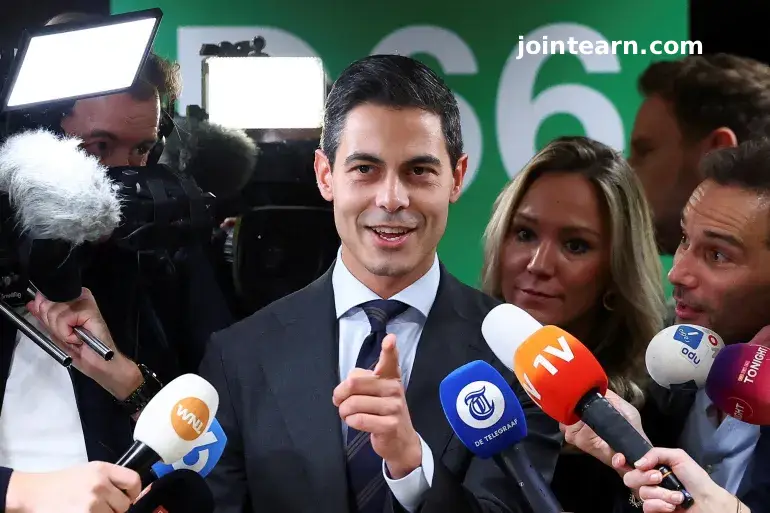
Rob Jetten Emerges Victorious in Closely Fought Dutch Election
In a dramatic electoral outcome, Dutch centrist leader Rob Jetten has claimed victory in this week’s general election, marking a setback for the far-right Freedom Party (PVV) led by Geert Wilders. The results reflect voter concerns over immigration, housing shortages, and climate policy, as the pro-European Democrats 66 (D66) party surged ahead to secure the most seats.
At 38 years old, Jetten is poised to become the youngest and first openly gay prime minister of the European Union’s fifth-largest economy, signaling a historic shift in Dutch politics.
“I think we’ve now shown to the rest of Europe and the world that it is possible to beat populist movements if you campaign with a positive message for your country,” Jetten said, reflecting the pro-EU and liberal stance of his party.
Election Results and Seat Distribution
The D66 party has tripled its parliamentary seats following an aggressive campaign strategy that combined positive messaging and a surge in advertising. Current tallies show D66 with 26 seats, potentially rising to 27 once all votes are fully counted.
Meanwhile, Wilders’ PVV and other far-right parties suffered losses compared to their previous performance in 2023, though Forum for Democracy (FvD) maintained a strong showing, capitalizing on nationalist and Eurosceptic sentiment.
The slim margin of victory means that Jetten’s party will lead negotiations to form a coalition government, requiring at least three partners to reach a majority in the 150-seat lower chamber. Potential partners include:
- Centre-right CDA (18 seats)
- Liberal VVD (22 seats)
- Left-wing Green/Labour coalition (20 seats)
However, forming a coalition may prove challenging, as VVD leader Dilan Yesilgoz has indicated that a partnership with Green/Labour “would not work,” advocating instead for a centre-right alliance.
Coalition Talks and Governance Challenges
Jetten has called on mainstream parties across the political spectrum to unite in order to address pressing national issues such as:
- Housing market reform
- Immigration management
- Climate change initiatives
- Economic growth and stability
Reporting from Amsterdam, Al Jazeera’s Step Vaessen noted that Jetten faces “serious challenges” in forming a coalition, particularly given the razor-thin vote lead over Wilders. The centrist leader emphasized urgency, stating there is “no time to waste because the Dutch people are asking us to get to work.”
Wilders, in contrast, criticized Jetten for prematurely claiming victory, reminding supporters that official results must come from the Electoral Council after all ballots, including mail-in votes from Dutch citizens abroad, are counted.
Historical Context and Far-Right Performance
The Netherlands has experienced rising populist sentiment in recent years, largely fueled by immigration concerns and debates over EU membership and open borders. While PVV lost support in this election, other nationalist and Eurosceptic parties like FvD continue to appeal to voters seeking stricter immigration policies and a re-evaluation of the EU’s influence in Dutch affairs.
Confirmation of the official results is expected on Monday, after which party leaders will begin formal discussions on forming a coalition government. Analysts predict that the D66-led centrist bloc will dominate initial negotiations, but compromises with multiple parties will be essential to achieve a stable governing majority.
Outlook for Dutch Politics
Jetten’s election victory represents a rejection of populist far-right politics and a potential turning point for the Netherlands’ role within the EU. The focus now shifts to coalition-building, addressing the country’s housing crisis, managing migration policy, and advancing climate commitments.
With coalition talks expected to be complex, Jetten’s leadership and negotiation skills will be tested as he works to form a government capable of implementing progressive reforms while maintaining political stability in the Netherlands.


Leave a Reply